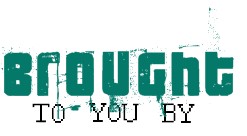QCF: Game of Thrones

The HBO adaption of George R. R. Martin’s A Song of Ice and Fire line has made waves with prime time television this last year. So much so, that Atlus picked up the license rights to publish a video game -- a video game about the Game of Thrones, simply called Game of Thrones. Developed by Cyanide, the Seven Kingdoms enter the realm of modern gaming, catering to fans of the medieval drama. But while the appeal has support from the show’s following, Game of Thrones is, at best, a mediocre fantasy RPG, whether you’re a fan or not.

For the fans, the license is faithfully adapted in a setting paralleling its television counterpart, switching back and forth between two different perspectives. You assume the control of either Mors Westford, a Veteran of the Night’s Watch, or Alester Sarwyck, a priest of R'hllor who returns to the role of nobleman to his abandoned kingdom of Riverspring. Characters from the show, Lord Varys and Jeor Mormont, reprise their roles from the show in a plot centering on lore in the chapter of the story focusing directly the novel, A Game of Thrones.
The narrative presentation is pristine. George R. R. Martin himself supervised the conception of the plot, and it really shows, as fans of the show will appreciate the finite details unloaded within a setting that does well to emulate the same charm of its source material. Despite dry voice acting, any fan of fantasy or medieval elements will enjoy the overall script and pacing.
Sadly, however, it’s all downhill from here.
Visuals are mostly muddied textures across the board, be it the stage (more on that in a bit) or character models. Models are further hampered by wooden animation too faulty to overlook. Overall, the graphics lack a substantial amount of polish in both design and execution. The music isn’t terrible, but rather uninspired with tracks falling short of anything memorable.

Stage design is the most offensive flaw. The core of the game is crafted around traveling from your ho-hum point A to point B, and with some battles in between. Traveling through the various villages or terrain, you’ll suffer navigating through these labyrinth-esque areas having little or no definitive characteristics, and conveying nothing beyond a bland aesthetic attempting to go for a quote-unquote “medieval fantasy” motif. Beyond the composition of the physical area itself, the navigation features a feeble mini-map. The mini-map provides contextual quest waypoints, but completely prevents from setting your own, leaving you at the mercy of the mini-map’s static markers with no way to discern a personalized route to navigate. More than likely, you'll have to visit the larger map from the pause menu so you can jot down some mental directions.
All of these falws are especially fleshed out when controlling Mors, who has the ability to summon a companion dog you control for scouting and tracking in areas. Tracking is affected when chasing down scents of where the next objective lies, and can get rather dicey when you’re micromanaging which scents you’re trying to to stay on top of, and will have you turning around often. The items that your dog can sniff out suffer greatly from shitty markers you’re forced to contend with on your mini-map when you trying to locate them with Mors but luckily, narrative objectives that involve scent tracking provide the ability to fast travel to end of the scent trail where your dog awaits. The scouting aspect is refreshing, as it helps you deal with enemies in your current surrounding by stealthily killing them out of their line of sight. Players will rip out the enemy's throat, which skips a possible combat encounter altogether. Alester gets the crap end of his character specific abilities; they only flesh out navigation for main quests, and simply reveal contextual actions in the area in order to progress, which is a blatant waste of potential. Dealing with your inadequate map can break the experience at times. Thankfully, other aspects in Game of Thrones are not as broken, but just a bit bland.
Customization options are layered to an entirely stupid extent. Let’s start off with your base stats of strength, agility, luck, endurance, and intelligence. Let's add some skill trees (one for the characters and other is tied to their exclusive ability). There’s more -- let’s stack on some additional weapon skill points you'll get, depending on what weapon you fancy using. And finally, pile on some different perks for strength which will have points of capacity you must forcibly balance out through various weakness in order to maintain a balance of point worth. To what end does this complex amount of customization serve to assist you in battle? Half of the options are significant, while other options hardly contribute towards your chance of victory, and prove to be fruitless.
Combat itself is nothing more than an active auto-battle. You micromanage three slots in an action queue that determines the use and order of abilities, which use up energy or items during auto-battle -- that’s it. Switching between party members to micromanage or switching targets are the two most intricate strategy functions you'll see. Most of the time, you hardly feel involved beyond bland data entry. There are status and ailment affects you can inflict upon your foes, but they never pose a real lasting effect against your enemies and, again, add little to the narrowed scope of combat. The alteration between characters adds variety when battling with Mors and using his dog for support, or Alester when possessing both enhancement and enfeeblement abilities. But again, the entire fighting experience remains mudane.

Game of Thrones features a moral compass system. However, it’s as ambiguous as the system in Dante’s Inferno. Branches are varied within the dialogue trees, but the only outcome will be an unlockable trait (traints are strengths you equip that don't contain a capacity point to counter-balance with a weakness). The moral choice possess no impact -- I repeat, no impact whatsoever on the narrative. The concept of unlocking traits through moral actions is novel; it’s potential is sullied by the insignificant return on practical value, as it again falls under the needless depth behind character growth.
Being a casual fan of the series, I really wanted to enjoy this adaption of the successful fantasy fiction. Though sadly, this experience doesn’t even come close to matching the same pedigree, and serves as a "play at your own risk" venture -- even for dedicated fans.

 Atlus,
Atlus,  HBO,
HBO,  RPG,
RPG,  game of thrones | in
game of thrones | in  QCF Reviews
QCF Reviews 









